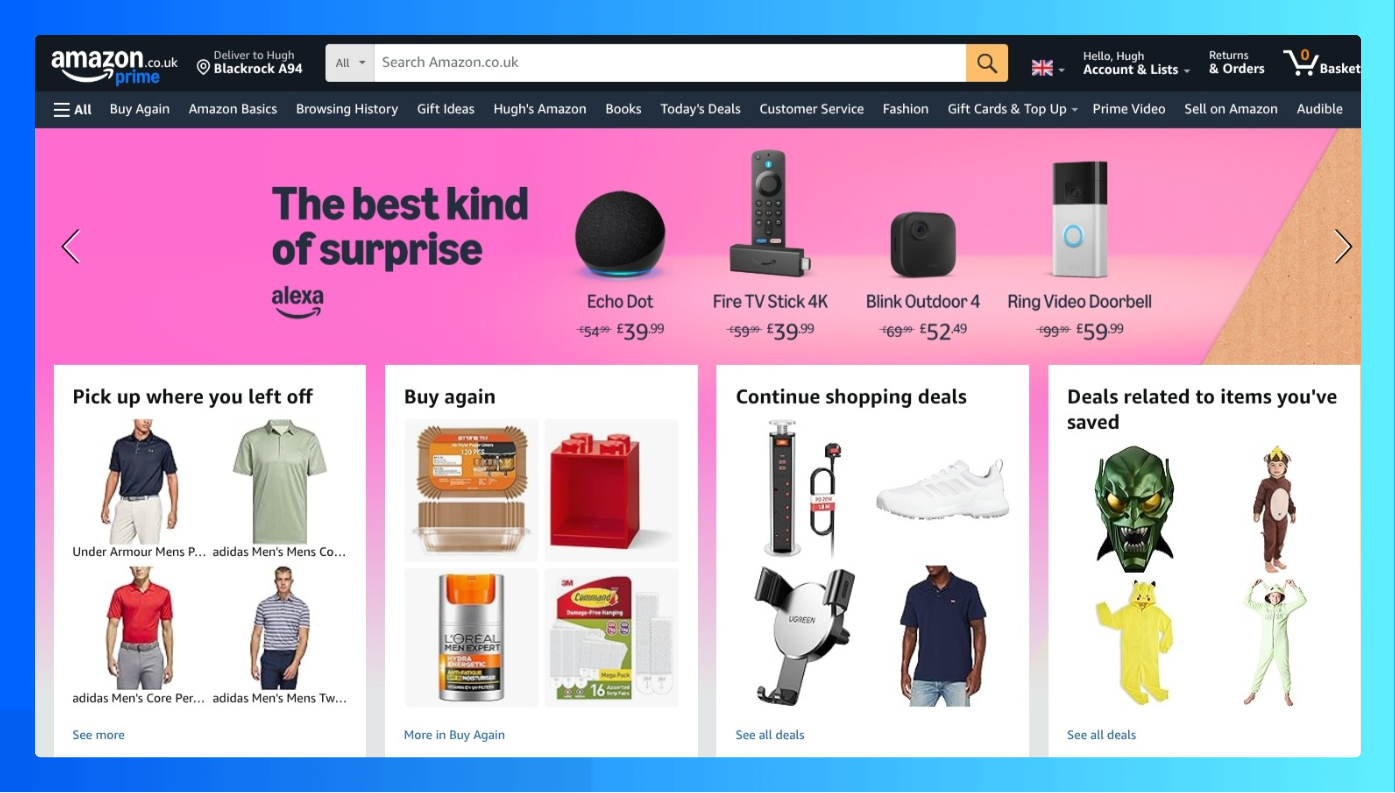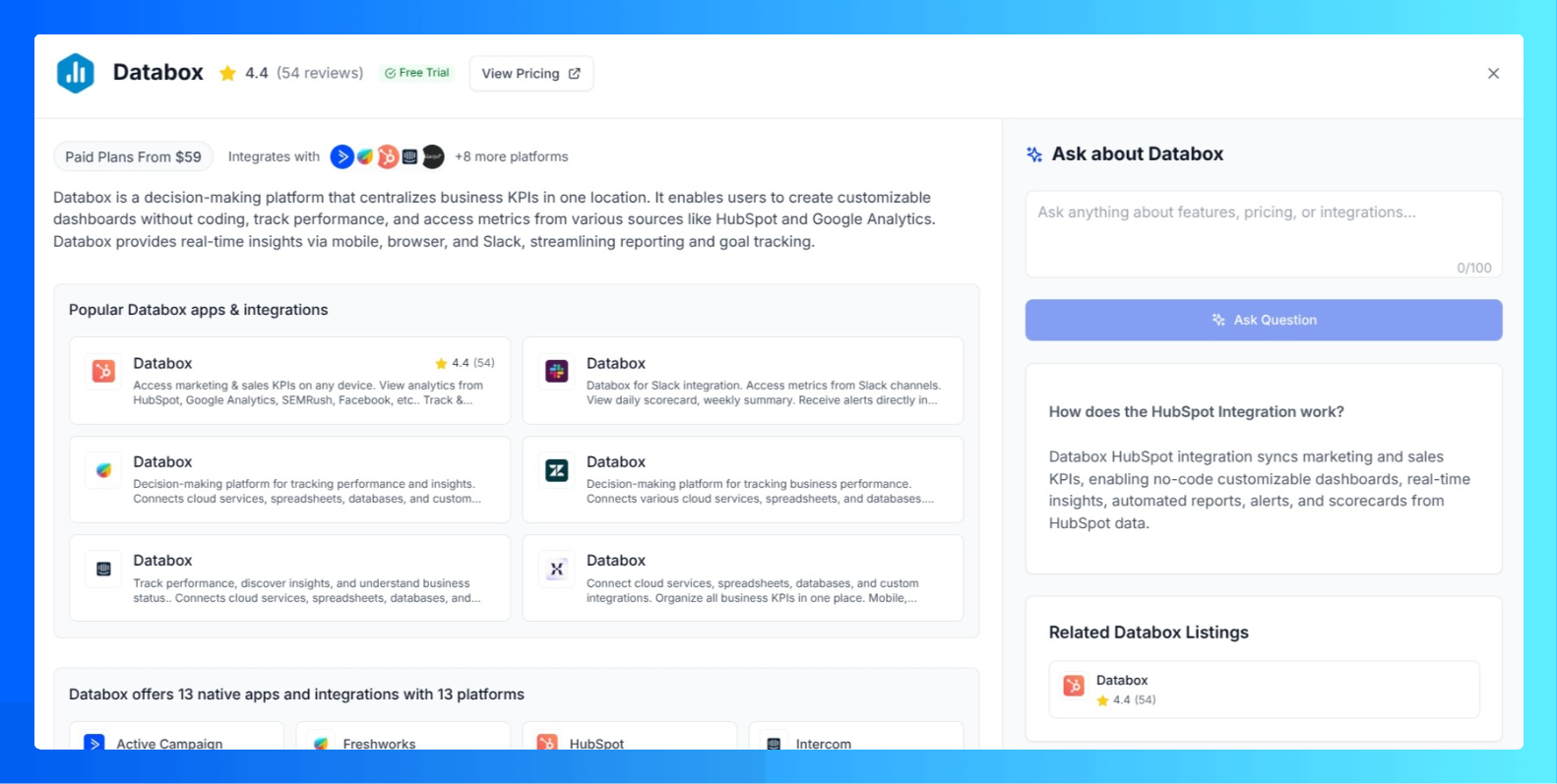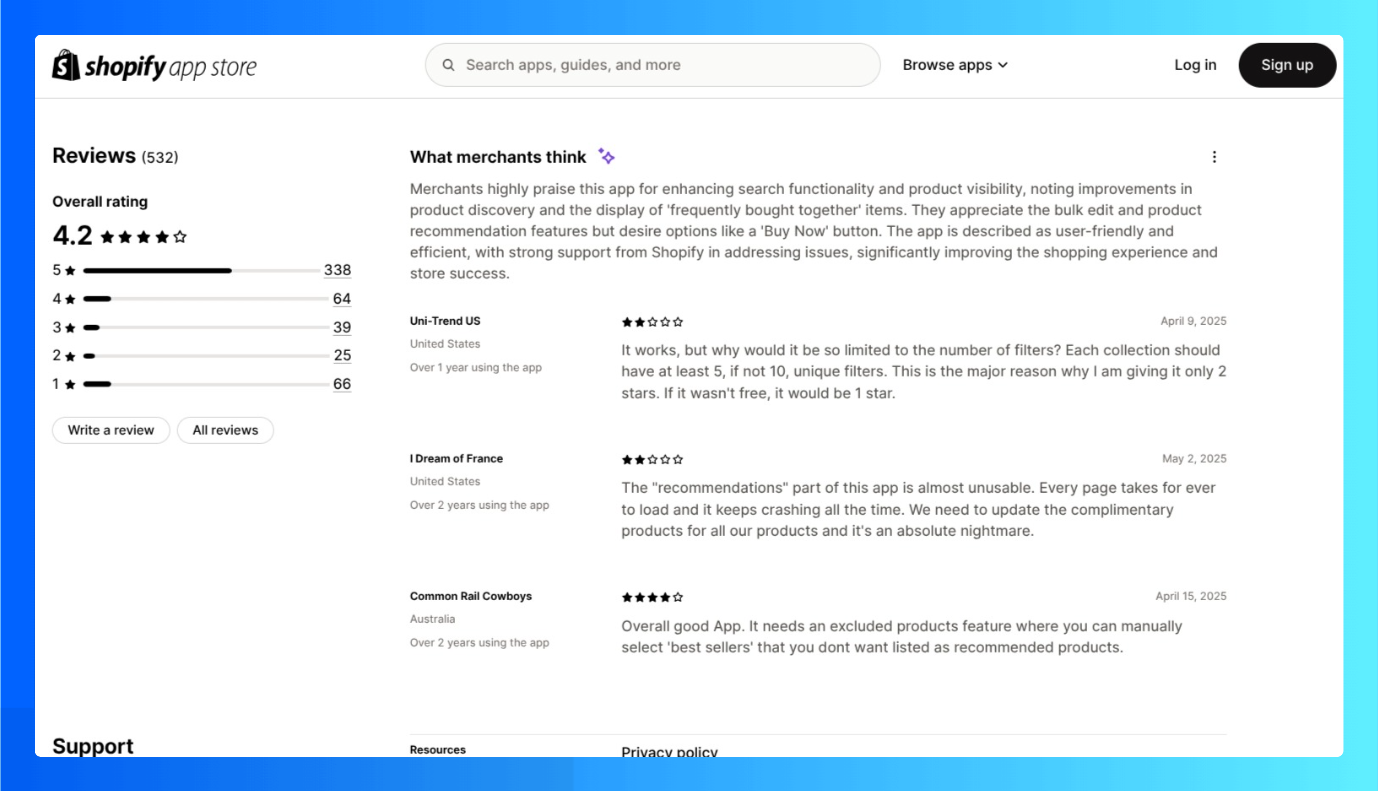I don’t know about you, but I’m finding it joyfully difficult to keep up with the latest updates from OpenAI, Anthropic, Perplexity and Google. It all feels quite similar to the social media meets mobile boom from 2012 on. New use cases, new products, new ways to create value. An endless barrage of LLM innovation.
It’s not just LLMs getting all the attention. Database management and storage has become even more important as businesses - big and small - aspire to connect their data to LLMs to answer questions and create new artefacts faster than ever before.
Which is why Databricks bought Neon. And Cloudflare bought Outerbase. Both acquisitions made me rather happy because much of what appmarketplace.com is built upon “lives” in Neon and Outerbase.
So, with all this innovation happening, where does this leave app marketplaces? Generative AI has created opportunities to positively impact app marketplaces - in more ways than one. Here’s three to start.
1. The quality of app marketplace inventory will improve (quickly)
Thanks to new standards like Anthropic’s MCP (Model Context Protocol), integrations are becoming more and more of a commodity. That’s a good thing.
Integrations - on their own - never really created unique product value. They did help customers to sync and act on data across multiple platforms, but many use cases were just that - back and forth syncs.
And many, many of these integrations went out of date as soon as they were built. This listing is a perfect example - the listing was last updated on the 10th of May 2021, over four years ago. The integration hasn’t been updated since then, too. Hence the 2.1 rating and poor customer reviews.
The rise of remote MCP servers should make integrations like these easier to maintain, easier to iterate on, and easier to create for multiple platforms at once.
Integrations will - effectively - maintain themselves, as developers lean on MCP as a federation layer to manage and maintain a growing number of integrations in centralized ways. And, of course, independent developers will build on this - creating AI-enabled “built for platform” apps on stable foundations.
This, obviously, will be good for customers. More apps, more integrations. Higher quality. Always up to date. What’s not to love?
2. The app marketplace customer experience will improve (yep, quickly)
I spend a ridiculous amount of my time browsing hundreds of app marketplaces - large, small, new, and old. The vast majority of them don’t - unfortunately - make for amazing customer experiences. Let’s start with search.

Most search and recommendation experiences are one size fits all. They’re not context aware. They don’t understand the intent of the searcher, their product usage habits, or which other products the searcher already uses. Compare this to your experience using Amazon. Everything is highly customized based on what you’ve bought, what you’ve considered buying, and where you live.
Replicating search and recommendation experiences like this used to be an expensive pursuit. Back in 2017/2018 I led an AI product team at Zalando, which built recommendation and intent systems for Zalando’s fashion store - used by tens of millions of customers. It wasn’t cheap. Or fast. Or easy.
Today, much of what we built then is available through OpenAI or Groq as a simple API call. Need structured information about the attributes of an outfit, based on a photograph? Need to recommend complementary products based on what customers are looking at now, and what they’ve bought before. Vector similarity search is - today - fast, cheap, and easy to build.
Which means it’s cheaper and faster for app marketplaces - specially the “big” ones - to add features like context-aware comparisons, recommendations, and answers.

Soon we’ll see “ask a question” features on every app marketplace, and soon software comparison websites will allow users to “ask a question” about products they’re comparing. AI-summarized reviews already exist on Shopify App Store (and on appmarketplace.com), and this will soon be a feature of every app marketplace.
Last, but not least, listing content quality will improve. Back in the early days of the HubSpot App Marketplace we had to incentivize and cajole partners to add basic information to their app marketplace listings. No longer a problem.
Generative API makes it easy to retrieve and enrich company and product information to automate listing creation (and QA). No more manual partner updates - AI agents will do the work for them.
3. The partner and marketplace management experience will improve (quickly, obviously)
During my time at HubSpot, my team and I scaled HubSpot’s App Marketplace from around 150 listed apps and integrations, to over 1,200.
Onboarding partners - checking integration quality, content completeness, and policy adherence - was a lot of work. Manual checks, back-and-forth emails, lots of checks with my friends in legal. Lots and lots of work-work.
No more. AI agents will automate most integration and content quality checks, and will check and double check partner agreements for us. AI agents will also monitor partner performance for us.

Product partnerships teams will soon have AI agents monitor partners to surface unusual trends (like positive or negative ratings), and they’ll surface the same trends to partners, too. No more “heads up” emails or QBR line items. Partners won’t need to wait a quarter to know what’s working, and what isn’t.
Features like “ask a question” won’t just provide answers to customers - they’ll generate insights and trends for partners. Partners will learn more about which competitors they’re being considered against, whether or not their pricing is clear, and how many seats a potential customer might be looking to buy.
Partners, and partner managers, will have the opportunity to measure partner performance based on sentiment and intent, further pushing accountability onto partners and laying the groundwork for a fair playing field for every partner. Agents are, after all, less biased than humans.
Onwards
Generative AI features will soon become table stakes for platform companies launching and managing app marketplaces. Quickly improving the experience for platforms, customers, and partners.




